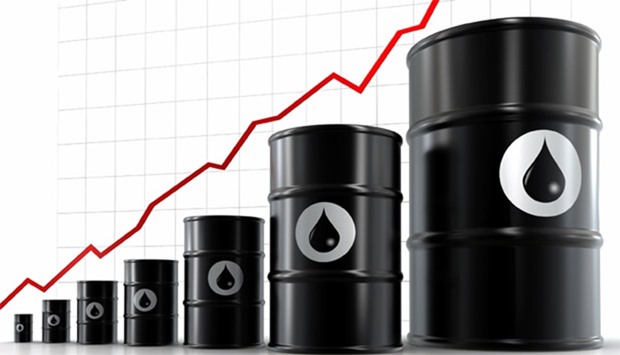Although Samba now expects a larger increase in Opec supply this year, led by Iran and Saudi Arabia, this should be offset by declines elsewhere such that global oil supply will contract this year.
With demand holding up, Samba said this will allow for a rebalancing of fundamentals and a drawdown of record high stocks, and should provide a supportive environment for prices. Of course, prices remain vulnerable to any weakening of demand, as well as the possible return of currently off-line supply.
US dollar strength may also temper any gains, as will the sheer size of stock levels that need to be worked down. However, the massive cut backs in oil investment appear to have produced a scenario whereby future supply growth may struggle just to replace that lost to accelerating depletion rates.
Samba thus continue to expect prices will move towards $60-65/b during 2017-18, which is the price range widely thought as necessary to prompt needed investments in new supply. By 2019-20 the depletion of US shale reserves should have become a more pressing issue, helping to support prices at around $75-$80/b.
According to Samba “the global oil demand has held up much better than many had been expecting”. Despite the “early year uncertainty” over China’s economy and global growth prospects in general, available year-to-date import and consumption data suggest that China, India and the US will be the main drivers of oil demand growth of 1.3mn barrels per day (bpd).
Growth in Europe may slow, but this should not have a major impact on global demand. Thus, while down on the exceptionally strong 1.7mn bpd growth in 2015 when demand responded to slumping prices, oil demand should continue to post a healthy increase.
With non-OPEC supply expected to contract this year as low oil prices lead to sharp falls in investment, Samba expects that the physical markets will move into deficit this year allowing for a drawdown of elevated stocks. Estimates for May from the IEA show a 780,000bpd year-on-year decline in non-Opec (excluding US) oil production, as supply declines in a range of countries including China, Brazil, Colombia and Mexico.
The Brexit decision did weigh on oil prices somewhat, pushing Brent down to around $45/b from around $50/b, but the benchmark is still some 55% higher than its early-year lows, Samba said.
Markets have been buoyed by a number of supply disruptions, notably in Nigeria, Canada and Libya, and evidence of sustained demand for oil, particularly from China, India and the US. Such developments have been sufficient to offset the return of Iranian supply which has been faster than many expected, and have helped tighten market balances.
According to Bloomberg, Iranian production has risen from around 2.8mn bpd at the end of last year, to 3.5mn bpd in May, not far off the pre-sanctions levels of between 3.7-3.9mn bpd. However, whether Iran can sustain further increases in production is less certain given the continued difficulties it is having in securing finance and investment.
Given the recovery in oil prices, attention is turning to US shale producers, which maintain a large number of drilled but uncompleted well (DUCs). Many of these are likely to be profitable at around $50/b, and could be brought into production relatively quickly.
“It is difficult to predict how much oil could be brought on stream from such activities, but we believe it will not be large enough to prevent average total US oil production from falling between 500-700,000 bpd this year,” Samba said.
The total US production has already fallen by around 1mn bpd from its highs in June last year, to around 8.7mn bpd now. However, the fall in rig counts (a proxy for investment activity) appears to have bottomed out, and over the past few weeks there has been small increases which could gather steam if oil prices continue to hold in the $45-$50/b range, Samba said.


